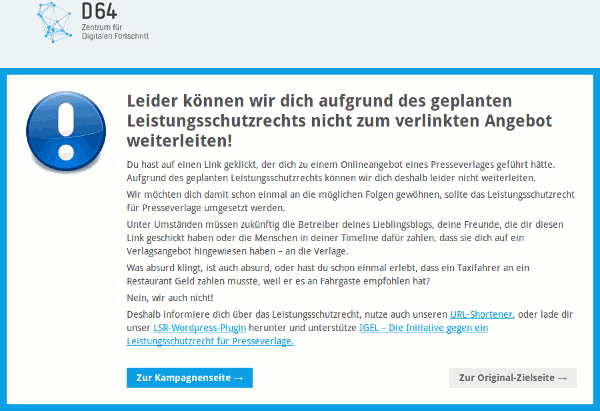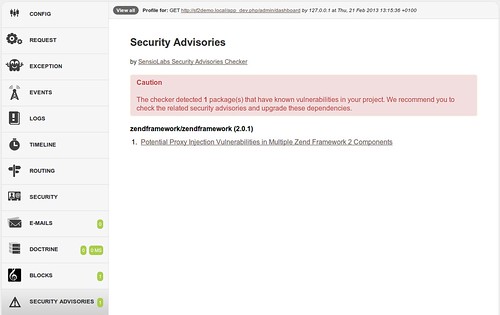Wie Garvin im offiziellen Serendipity-Blog verkündet hat, gilt Version 1.7 der Blog-Software seit gestern offiziell veröffentlicht. Serendipity treibt dieses Blog schon seit Jahren an, und ich entwickle hin und wieder am Core und vor allem an Plugins für S9y mit.
Version 1.7 ist ein Release, der vor allem Bugfixes enthält und für noch mehr Stabilität und Kompatibilität mit PHP 5.3/5.4 sorgt - und außerdem nur noch mit PHP-Versionen >= 5.2 funktioniert. Damit sind zwar immer noch nicht alle PHP4-Altlasten entsorgt, aber zumindest müssen diese bei der Weiterentwicklung nicht mehr berücksichtigt werden. Die Entwickler-Community kann sich nun voll auf die Version 2.0 konzentrieren.
In der 20. Folge des Serendipity-Podcasts "S9y InfoCamp" sprechen Robert und Matthias mit Lead-Developer über alles Wissenwerte, das den neuen Release betrifft, und beleuchten auch die geplante Weiterentwicklung näher. Reinhören lohnt sich also.
Die diesjährige Ausgabe des Karlsruher Barcamps war ein Barcamp rein für Entwickler und trug daher den Namen Devcamp. Bereits im letzten Jahr war die Idee aufgekommen, ein eher technisch orientiertes Barcamp für Programmierer, Admins und sonstige Code-Monkeys zu veranstalten. Dank Sponsoren wie Gameforge wurde diese Idee am vergangenen Wochenende Realität.

"Devcamp Karlsruhe 2013" vollständig lesen
Nachdem Ende letzter Woche das Leistungsschutzrecht für Presseverleger im Bundestag verabschiedet wurde, spülte meine Timeline das Wordpress-Plugin vom D64 Zentrum für Digitalen Fortschritt wieder in meine Aufmerksamkeit. Das Plugin lädt eine Blacklist aus dem Netz, in der die Domains von Verlagen gesammelt werden, die das LSR unterstützen. Mittels dieser Liste lenkt es Links zu den Verlagsseiten, die in Blogartikeln enthalten sind, auf eine Hinweisseite zum LSR um:

Coole Idee. Ein kurzer Blick auf GitHub sagte mir, dass es nicht schwer sein würde, das Plugin für Serendipity zu adaptieren. Gesagt, getan.
"Leistungsschutzrechtprotestplugin" vollständig lesen
Seit geraumer Zeit besitze ich ein Arduino UNO, habe damit aber noch nicht viel mehr gemacht als ein paar LEDs zum Blinken zu bringen oder einen Servomotor anzusteuern. Vielleicht sollte ich mir endlich ein Ethernet-Shield dazukaufen, denn so völlig offline kann ich gar nicht mehr denken, weswegen mir da teilweise die Ideen fehlen O_o Außerdem werden die Arduino-Boards üblicherweise in einem vereinfachten C-Dialekt programmiert, der zwar einfach zu erlernen ist, aber auch nur bedingt Spaß macht (vor allem mit der offiziellen IDE)  Zum Glück gibt es aber, wie bei Open Source-Projekten nicht ungewöhnlich, schöne Alternativen.
Zum Glück gibt es aber, wie bei Open Source-Projekten nicht ungewöhnlich, schöne Alternativen.
Firmata
Firmata ist ein Programm, welches - einmal auf das Arduino-Board übertragen - die Kommunikation mit Software auf einem anderen Computer ermöglicht. Firmata definiert gleichzeitig also auch das Protokoll, über welches mit dem Arduino (in beide Richtungen) kommuniziert werden kann. Wenn ich das richtig sehe, wurde Firmata zunächst für den Einsatz mit Processing entwickelt. Mittlerweile gibt es aber eine ganze Reihe von Client-Bibliotheken für verschiedene Sprachen.
Das Arduino-Board kann also von einem Host, auf dem die Software läuft, angesteuert werden; es können aber auch Sensoren oder z.B. ein Potentiometer ausgelesen werden. Für mich persönlich ergibt diese Kommunikation mehr Sinn als das pure Aufspielen eines Sketches, der dann auf dem Arduino-Board autonom vor sich hinläuft.
"Arduino mit PHP und Javascript programmieren" vollständig lesen
Only two days after I pushed the first version of my VersionEyeBundle for Symfony2 to GitHub, Fabien Potencier announced SensioLab's new Security Advisories Checker. This service work quite similar to VersionEye, but instead of uploading your composer.json file your composer.lock file is required to figure out which dependencies are really installed - and if there are any known security issues.
SensioLabs have an upload form in the browser, but conveniently offer an API, too. And, of course, the code of their security-checker is on GitHub. So what could be more natural than to add the results of the security check to the Web Profiler Toolbar right next to all the other useful information? Right. I wrote a second bundle, called VulnerabilitiesBundle, that displays security advisories in the toolbar and the profiler view.
Please keep in mind that this is an early development version that is only intended for use in DEV environments (even if it will be stable someday). It just doesn't make sense on production servers. Feel free to fork, test, and report any issues you encounter. Of course, contributions in the form of pull requests, are more than welcome 



